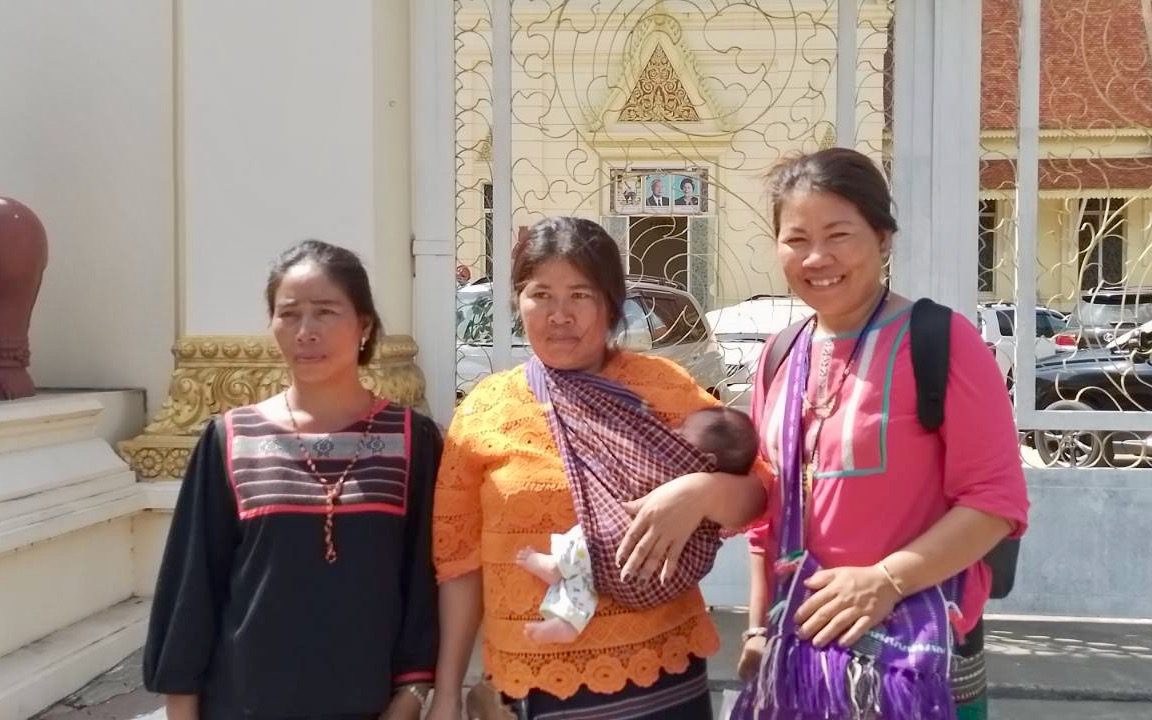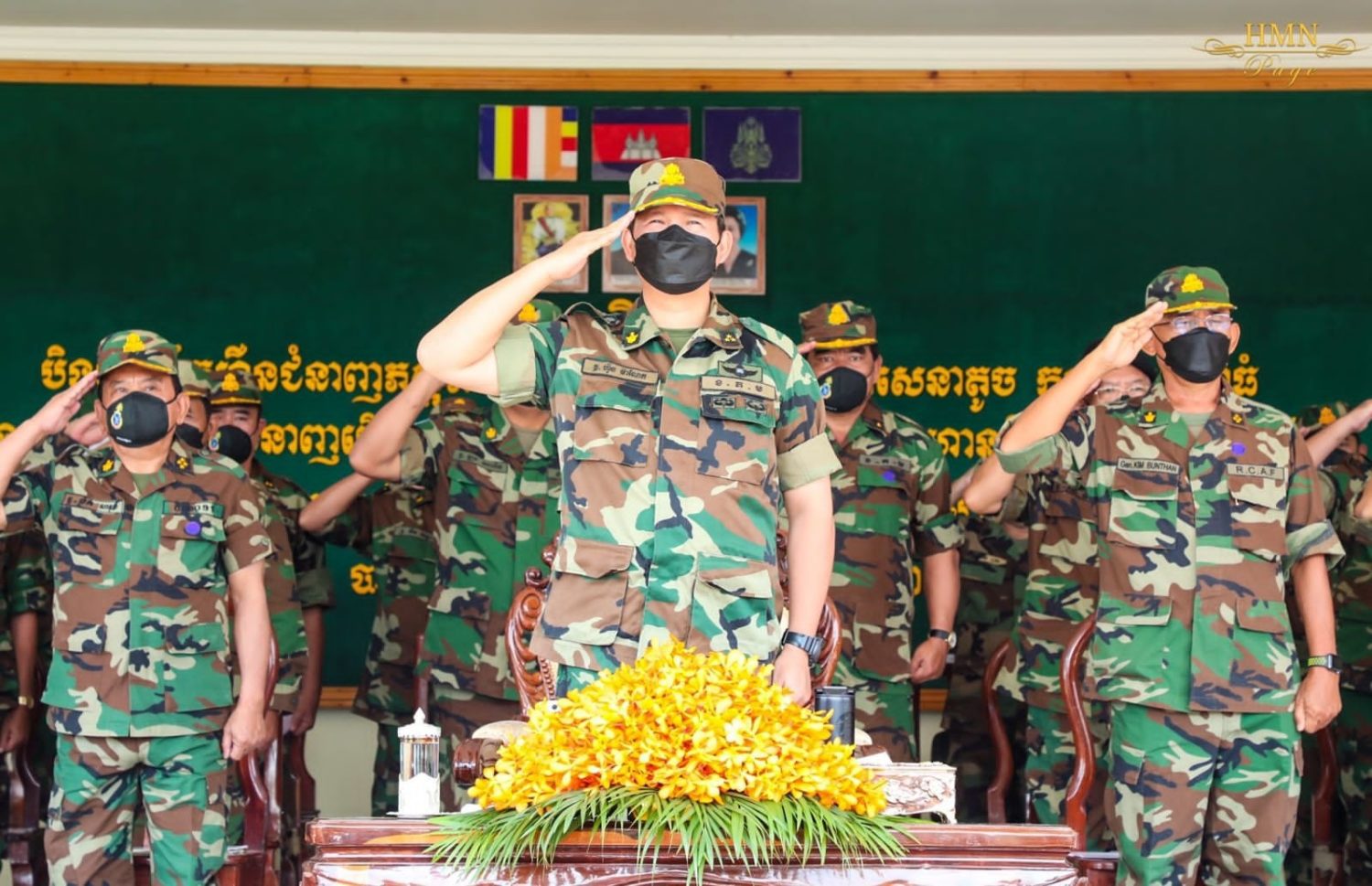Three indigenous Bunong women from Mondulkiri made an appeal in the Supreme Court in Phnom Penh on Wednesday over their convictions for removing fence posts on purportedly private property while trying to protect ancestral lands.
Ploek Phyrom, 39, Ploek Navy, 37, and Khvoeung Tum, 48, are accused of having removed and damaged fence poles in October 2020 alongside about 70 other people on property owned by plaintiffs Khun Samna and Sim Bophanna. Local Bunong residents accuse Samna and Bophanna of taking their community land in Sokdum commune’s Lauka village.
The three were initially sentenced in July last year to two years in prison for intentional damage and violence over the incident, but they were not immediately sent to jail.
Under questioning on Wednesday by the presiding judge, Phyrom, Navy and Tum said they were not satisfied with the convictions ordered by the lower courts since they were only trying to protect their community land.
Tum said the land contained ancestral graveyards but had been encroached upon by the plaintiffs.
“I ask the judges to find justice for me and cancel the land title since there is no agreement from villagers, and that is a faked land title,” Tum said.
Navy told of herding buffalo on the land when she was young. “Our indigenous people need to protect that land, and not allow anyone to do anything on that land.”
She said they had complained about the encroachment to local officials, but only verbally. They did not understand the process of filing a formal complaint, she said.
Presiding judge Kim Sathavy told her that people should not take matters into their own hands. “You have your community law, but the whole kingdom has another law above that. You can’t solve [issues] by yourself. You have to understand,” Sathavy said. “The country has laws so you have to follow the law.”
One of the plaintiffs, Samna, said he had bought the land in 2005, but did not have a formal land title yet. Some 100 fence posts had been damaged by villagers, he said.
Defense lawyer Sek Sophorn argued there were no documents showing clear boundaries for the plaintiffs’ purported land. The plaintiffs did not clearly know the boundaries themselves, he said.
Sophorn continued that 60-70 people were involved in removing the fence posts, and it was inappropriate that only his three clients had been prosecuted.
The plaintiffs’ lawyer, Nuon Sotheariddh, said there had been no contest to the land ownership when it was purchased in 2005.
The Mondulkiri court’s 2021 sentence included two-year jail sentences alongside 10 million riel in fines (about $2,500) and about $5,000 in total compensation to Samna and $11,000 to Bophanna.
The Appeal Court in Tbong Khmum upheld the verdict but said they had to only serve six months, the fine was reduced to 5 million riel (about $1,250), and compensation to $2,000 and $8,000.
Prosecutor Duch Kimsorn asked the Supreme Court on Wednesday to uphold the verdict but suspend the jail sentences against the three indigenous defendants as they had little education.
A decision is set to be announced on June 29.
Phyrom, Navy and Tum are also all part of a defamation and incitement case currently before the Mondulkiri Provincial Court.













